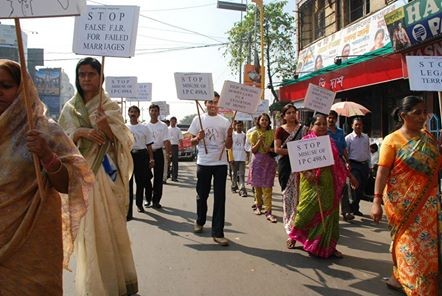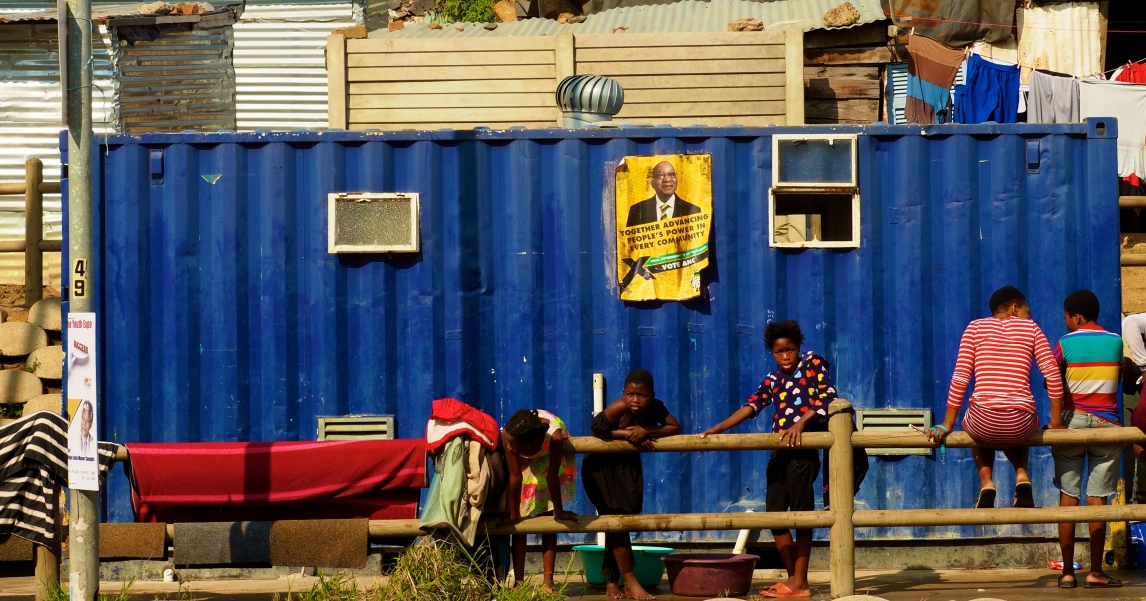When I think about “men†– the men that come up in conversations that usually end on some variation of “men are bastards†– I’m not thinking about my father, cousins, husband or son, all of who are wonderfully warm and caring people.
I think about the guy at university who told me that “All things being equal, a woman will never be as smart as a man,†the men who force themselves on girls in out of the way rooms and passages, who have abused children, who beat their wives or financially entrap them in abusive relationships or destroy them emotionally, the ones who leave their wives for other women or disappear from their children’s lives, refusing to support them financially or emotionally.
You may think I’m rattling off a list of clichés but sadly, I have personally known women who have been put through all of the situations I’ve mentioned here.
So when someone tells me that today is International Men’s Day, I can’t help but roll my eyes and think “Un-frikkin-believable.†Men don’t need a special day of pampering, they need a day to take a long, hard look in the mirror.
National “Let us stroke their ego and show them that we know that not all of them are abusers” Day. In short, National Men’s Day.
— Pontsho Pilane (@Pontsho_Pilane) November 18, 2015
And then I stop, and ask myself whether I’m being entirely rational. (Answer: no.) Because when you look right at it, is there really a problem with holding a special day to raise issues affecting men and boys? Women bear the brunt of gender inequality in society. But that’s not to say that men have an easy time of it. Almost five times as many men commit suicide as do women in South Africa. This has been linked to poor health-seeking behavior in men – men are much less likely to seek help when they’re feeling depressed. This failure to seek medical help also increases the risk that illnesses such as testicular cancer will be caught late.
On paper, International Men’s Day doesn’t seem like a bad idea at all. It’s aims are to promote positive male role models, celebrate men’s positive contributions to society, focus on men’s health and well being, highlight discrimination against men, improve gender relations and promote gender equality and create a safer, better world. The theme for this year? “Working To Expand Reproductive Options for Men†All of these ideals would help build a more equal society and one that is better for men and women. Men who want to take responsibility for their reproductive health? Hallelujah! The problem though is the way the celebration of Men’s Day has been linked to the men’s rights movement. Don’t get me wrong – men have rights and their rights should be protected and promoted, as women’s rights should be protected and promoted. The problem is the intersection between the more radical and hate-filled elements of the men’s rights movement and the feminist movement. That way lies a deep pit of hate, vitriol and stupidity that no sane person would ever want to dip into. Here in South Africa we have bigger fish to fry.
#16DaysofActivism pic.twitter.com/Ws3CzaVDFU — Department of Women (@Dept_of_Women) November 18, 2015
South African women here are much more likely to be unemployed than men, are more likely to be killed by their partners than in most countries in the world, and live in a country with one of the highest rape rates in the world.
So if you’re a woman in South Africa and someone tells you it’s international men’s day, you probably don’t immediately think to take your wonderful dad out to a steak dinner; you think about the guy you know put his girlfriend in the hospital and then you think “Oh, hell no.â€
For a lot of women, it’s not the idea of celebrating men and wishing them healthy, happy lives that grates. It’s the reality that here, men are often perceived as a threat to women. A lifetime of personal experience has shown us that it’s not unusual for men to treat women badly.
We joke about it when we tell people “If you hurt my friend, I’ll come after you.†We never question our assumptions that any given man is a potential threat.
In a peaceful society where there was greater gender equality, where men and women are not set up in opposition to each other but in alliance, where we treat each other with respect, where we are free to choose whatever social roles we wish without any prescripts of what is “manly†or “womanlyâ€, no one would bat an eyelid at the mention of a Men’s Day or a Women’s Day.
Unfortunately, we don’t live in that society right now. One in four South African men has admitted to raping a woman, and every day, three women die at the hands of their intimate partner. For South African women, men are a very real threat, and the idea of celebrating men, as a generic group, does not go down easily.
In the run-up to the 16 days of activism for no violence against women and children, it’s these harsh realities that South Africans must grapple with as we ask what men and women can do to build a society that protects the vulnerable and uplifts the downtrodden.
Featured image:Â “International Men’s Day Kolkata 2007” by Amartya.talukdar – Own work. Licensed under CC BY-SA 4.0 via Wikimedia Commons -Â









